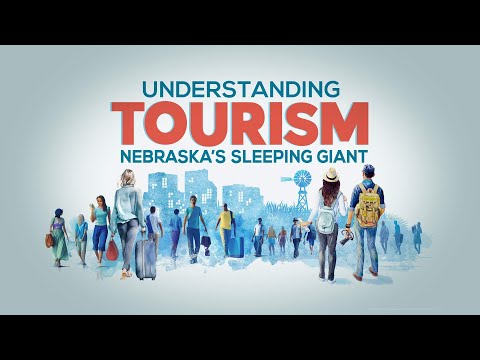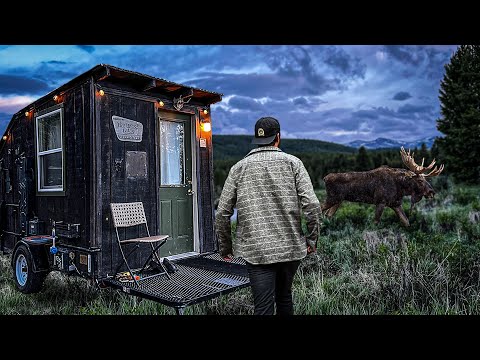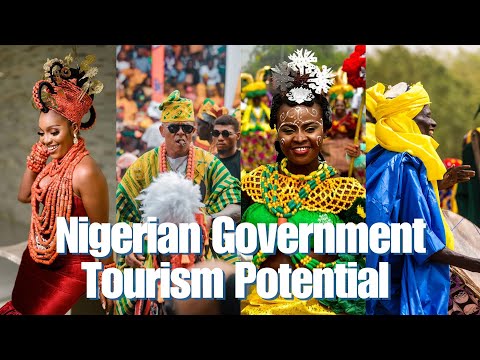Understanding Tourism Nebraska's Sleeping Giant | Nebraska Public Media Connects | NE Public Media

(light music) [Announcer] This is a Nebraska Public Media Connects production in partnership with the Nebraska Tourism Commission. For information about planning your Nebraska trip, visit nebraska.com. [Rita] Tourism affects everyone.
It affects the health of our state, the health of communities, and the happiness of people, and the wellbeing of people. It affects everyone. [Narrator] The tourism industry is wide ranging and in Nebraska, the Nebraska Tourism Commission along with its industry partners work hard getting people to visit Nebraska and working to awaken a sleeping giant that is a boom to the state's economy. (light cheerful music) Tourism is discovering this great state, moving people around this great state, and bringing them here to discover what Nebraska is really about. So how on earth do we get people from out of state to know we're here? You do need to be an ambassador.
You need to sell your region. If we don't support the things that we have, it's going to be really hard to have them be there the next time you wanna come. (light cheerful music) [Karen] I think tourism is going places to experience new things that you've never been to before and kind of delve into the culture and new places. [Norman] Well, I think tourism is any activity outside of your home that you enjoy. And that, in Nebraska, leads to a lot of opportunities for different experiences.
[Ashley] I think tourism is when people like to go out and visit new places to get to learn, like, more about, you know, just outside their town or to go on vacation, look at the pretty spots in the world. [Morgan] To me, tourism is when I can take some of my free time and travel to some places here in the state and beyond and just spend some time at that place. Tourism's about economic development, it's about building our great state, it's about promoting our great state so it becomes even greater and greater.
Hi, I'm John Chapo, president emeritus here at the Lincoln Children's Zoo, and I'm also the past chair of the Nebraska Tourism Commission. Tourism to me, it's got a lot of different layers to it. You know, it's obviously the museums and the visitor centers and some of the activities. It's also such a benefit to the community because many of those activities bring people together. It creates a vibe within the community.
And you'll find people that get together for those types of activities. It ends up spilling over to other activities. I'm John Stinner, formerly a community banker here in Gering and served in the legislature, the 48th district. [Narrator] In Nebraska, tourism is the third leading revenue earner, behind agriculture and manufacturing.
Nebraska's tourism industry is a revenue generator pumping billions of dollars into the state's economy, including hundreds of millions into state and local revenue. But what exactly is tourism? I think tourism, at its base, is businesses like ours. Yeah, there's natural features and things like that to come see, but for the most part, we're talking entrepreneurs, small businesses, unique kinds of businesses, and that, to me, is the base of tourism. And so we are an integral part of what tourism is defined as in this state.
It's not something out there that we wish we could be a part of. We are it and we're as important to tourism as tourism is to us. I'm Max McFarland.
I am one of the co-owners of Mac's Creek Winery, Brewery, and Cidery. We are located just on the north edge of Lexington in Dawson County. My family and I own it and we opened our doors in December of 2002. (light cheerful music) [John] Tourism is discovering this great state, moving people around this great state, and bringing them here to discover what Nebraska is really about. It's a state that has a plethora of entertainment and great destinations and great events. And that's what tourism is.
You can have a gem, you can have a jewel, but you gotta share it and you gotta tell people where it is and how to get to it. - Here in Omaha, about 13 million out of town travelers visit every year. About 15,000 Omahans depend on tourism for their livelihood.
So if you think about it, if there's a business that employs 15,000 people and is generating $1.2 billion for your local community, it's gonna be really valued. That's what tourism is. I'm Deborah Ward, the executive director of the Omaha Convention and Visitors Bureau, also known as Visit Omaha. [Narrator] Jeff Jorgensen co-owns Tannenbaum Christmas Shop, Old Market Candy Shop, and Dolci Ice Cream and Desserts.
The oldest of these businesses has been in Omaha's Old Market since 1977. He's seen the investment in promoting Omaha and The Old Market over the years pay off. There's 30 restaurants in The Old Market, 19 pubs and taverns, 8 art galleries. I mean, and it goes on and on. Christmas shop. Candy shops.
And so we're really busy almost all the time with a lot of things that people might not think of as tourists, but they are things that bring new money to the state and to our shops specifically. (light cheerful music) Without the visitors, we would not have these shops. These shops really are dependent on the visitors. [Narrator] Tourism is getting people to enjoy Nebraska's natural beauty, historic landmarks, geological wonders, vibrant cities, and off the beaten path towns. Because Nebraska is such a big state geographically, it's divided into seven regions from a tourism standpoint. From the Omaha metro heading west are the Northeast, Southeast, Sandhills, South Central, Southwest, and Northwest, where you'll find the town of Potter.
The town of Potter is a small little town out in the panhandle of Nebraska. We're a population of about 350 on a good day. Unique is the bowling alley that we're sitting in right now. It's a duck pin bowling alley, where you need to have a pin setter. The pin setter will jump down when you're done bowling, set the pins for you, return the ball.
It rolls back up this way and then you continue to bowl. And, of course, we have the old fashioned soda fountain where you can get our famous Tin Roof Sundae. (spoon clanging) [Sundae Maker] You're gonna love it. It's a little messy. Hi, I'm Jennifer Thomas from Potter, Nebraska. I'm a retired art teacher and a volunteer in our community.
(children chattering) [Max] We work hard to try and get the word out, get our name out, and get people from within the state to come see us, and that's essential. But perhaps equally as essential is how on earth do we get people from out of state to know we're here? We have an interstate three and a half miles away from us, and how many hundreds and thousands and millions of people drive by every day and have no clue? So we look for ways to extend that. We need help to extend what, to getting the word out.
And without the efforts of state tourism, you know, that's just not possible for a business of our size to be able to do that. [Narrator] One big effort the Nebraska tourism industry invests in to get people into communities is the Nebraska Passport Program. Jamie Meisner grew up in Gering and owns the Mixing Bowl, a cafe known for its German pastries that also serves breakfast, lunch, and is a full service coffee bar. (soft music) The Summer Passport Program has 70 stops on it across the state. And you basically get a booklet and you just travel to all these destinations, get a stamp.
However many you get to, you earn prizes. It's just really a great way to see the state. We've been a part of the Nebraska Passport Program back in 2019. We thought that was great for us.
We had definitely a boost in sales and, you know, it got us a lot of reviews, which it helps in turn later down the road because people know that we're serving something that other people have enjoyed. -Here you go. -[Customer] Thank you. (light cheerful music) - [Jennifer] For any small town, especially us out here in rural western Nebraska, kind of the boonies, I think it really helps. It gives all our businesses more customers. The flea market downstairs this year was on the Passport Program and we've been fortunate to have other businesses on that in the past several years.
And it just is a boost to our little economy here in downtown. Well, the Passport Program, we participated in 2022. It brought quite a few folks to the museum.
Almost 2,000 folks who otherwise would not have known about us or would not have come. [Narrator] Eric Ewing is the executive director of the Great Plains Black History Museum in Omaha. To him, the Passport Program works for everyone.
It brings more people to his museum and they learn a new perspective on history. Although this is Great Plains Black History Museum, I always point out to my visitors that first and foremost, it's American history. Because everything that we talk about occurred here in America. Now, it's American history told through the lens of African Americans, but it's still American history. So it's not just history and information that I need to be aware of as an African American, but it's history that we all need to be aware of as Americans. (light cheerful music) (light music) [Natalie] Most certainly, we absolutely love to go and do things and see and travel.
[Ashley] In a way, kind of, yeah. [Kyle] No, not so much. [Connor] How is my life affected by tourism? I would say very little. [Narrator] Actually, tourism is a key driver of Nebraska's economy. And whether we think so or not, the tourism industry affects all of our lives.
A recent marketing effectiveness study reported that every dollar invested generated more than $20 in visitor spending. [Rita] Tourism affects everyone. It affects the health of our state, the health of communities, and the happiness of people, and the wellbeing of people. It affects everyone. I'm Rita Stinner and I'm a former choral conductor and now the president of the Nebraska Cultural Endowment. (light music) [John] When people come in from out of town, they're helping generate lodging tax, sales tax, additional taxes that help support and increase the quality of life here in Lincoln that we're not paying for.
So when somebody comes in from out of town, they're helping me save money, helping improve the quality of our community. And destinations like the Lincoln Children's Zoo make your property value more valuable. -Here we go. -Look at that tongue. All right, good job, guys. Thank you. [Deborah] When people are spending money at stores, they're paying sales tax. They're paying state sales tax.
They're paying city sales tax. They're paying things that go into that community's coffers. And that money is used to support the residents. So for instance, here in Omaha, if tourism didn't exist, every taxpayer would be paying $700 more in taxes or they would see a reduction in services.
So tourism does touch every single person. Number one best seller, okay. Local people have to understand when they do talk to people outside, you know, you do need to be an ambassador, you need to sell to your region. You need to be highly involved in what is happening in your region so that you can convey that to people and get them excited about coming. Since we're a town of less than 350 people, of course, the tourism impact financially is a boost for our businesses. We spend a lot of time and money on advertising in magazines across the state and the Tri-state area and other areas just to promote our town and get people to come visit us.
(light music) [Steve] Because we bring money to your state. [Dave] You can use it to repair roads for people to come in and, you know, put little things in nice little places and have greenery and stuff. And I think that's important to really enhance a city. [Natalie] It's so important to bring tourists into the state, especially for Nebraska because I feel like people don't recognize the potential in all of the history and the amazing things that we have here in Nebraska.
[Larry] They have a beautiful state and they have some beautiful people and they have just a lot to share with the rest of the country. [Deborah] I actually think the biggest misconception among travelers and from locals is that there's nothing to do in Nebraska. And there's a lot to do in Nebraska. A lot of unique experiences that you can only do in this state. [Narrator] Loren Pospisil is the site supervisor at Chimney Rock, arguably Nebraska's most famous landmark. He sees visitors from all over and enjoys the opportunity to interact with them on a personal level.
We're not New York City. We're not the Grand Canyon. We're Nebraska and we have a lot of wonderful things that a lot of other places don't. And that's the reason that people come here. (light music) It's actually just a surprising state. And I'd only been out through, like, the eastern portion of it on I-80 and it's not much to it.
But one time I happened to drive through the Sandhills and then camped at Fort Robinson when I was actually on my way to California and kind of explored the area around here a little bit. And actually really, it's really nice. I really like it. It's not what I expected Nebraska to be like.
[Jamie] A lot of people just think that Nebraska and possibly Western Nebraska in general is just, there's nothing to see. That is definitely not the case. We have all kinds of activities, beautiful scenery, and we have events like the Monument Marathon and the National Gravel bike race that can really showcase what this area has to offer. (soft music) [Loren] A wonderful thing about Nebraska is that the modern day things in Nebraska really seem to fit in with the lay of the land. So when people are driving through Nebraska, they're not hit with big garish billboards, but also big garish industries. It's a wonderful plain land.
The way it was originally designed, people are still using it for those types of purposes. So while we don't have a big Grand Canyon or anything like that, we do have a wonderfully pleasant place where people can just feel at home in. [Narrator] Sandra Reddish is the Western coordinator for the Nebraska State Historical Society Foundation. She talks to visitors hoping to get a closeup view of Chimney Rock from some of the trails. So we've had folks from over 40 states that have stopped out here.
I'm gonna count on my fingers. Australia, Austria, Belgium, Netherlands, Germany, France, Spain, Italy, South Africa, Norway, Finland, Denmark, Japan, Korea, Vietnam, Peru is our latest one. We've seen it on movies and everything else and we just wanted to come see it for ourself on our way back to Texas from touring Yellowstone. There's a lot of history here. A lot of the trails have crossed through here. And Nebraska has a rich cultural history between the Native Americans and the folks moving, immigrating west.
And I've always been interested in that type of history. And there's a lot of it here. Well, we've toured the museum.
Of course, I had to take pictures of the Chimney Rock formation itself. Had to make a few purchases as well. [Narrator] As Nebraskans, we have a vested interest in seeing our tourism industry thrive. And when it does, when tourists visit Nebraska, we all reap the benefits. Across the United States, rural America is shrinking.
In some cases, people are moving away from rural America to find bigger cities and what they think are more opportunities. And what we need to do is celebrate the opportunities we have, make them known, and embrace them and advertise it so that people will come here for what we have to offer. The Nebraska Tourist Commission supports all 77,000 square miles, okay, of promoting Nebraska because we have destinations everywhere, all the way across the state. So when I go tanking in Mullen and I spend a couple nights in Mullen, and go to the restaurants in Mullen, like Red's Diner on Highway Two, I'm leaving income there.
And that income, the lodging tax that's being left there is going to the Tourism Commission so we can get the word out. (light upbeat music) Tourism is very important to Nebraska. Of course, because of tourism, we have a wonderful museum here that talks about the history of the trail and Chimney Rock, but tourism and Chimney Rock, but not just Chimney Rock, tourism along the whole Oregon Trail is really vital to the state of Nebraska.
The panhandle of the state of Nebraska is 4% of the state's population. So the influx of tourists really help our economy a great deal. (wheel clicking) We are committed to keep ourselves active and apprised of what's going on in the state with tourism and other entities as well, which means going to the conferences. We've even presented at those conferences. We've hosted some of those conferences.
So we are really intertwined with what goes on with tourism. There's also grant programs that help us enhance what we do here at the local level with some financial support to do that. There's social media, there's hard print media out there that is available to anybody in the tourism business in this state if they choose to take advantage of that. [Deborah] As the largest city in the state of Nebraska, we really depend on the state tourism department for educational opportunities and for a lot of grant money that helps us continue to promote the city.
If you pull into a little town that looks like a ghost town and doesn't have much going for it, you're probably not gonna wanna come back. But in Potter, I think, you pull in and go, yeah, this is a fun little town. And next time I wanna go there and eat or I wanna go over here and see this or make sure I come when there's an event or something like that. [Max] It really is a family kind of endeavor to work together.
We've been able to feed ideas into tourism that are going to make possible new directions. We get ideas from tourism all the time. The kind of things that are going on that help us with our promotions and what have you.
To extend what we are able to do with what we can here in terms of resources by 100 fold is just critical. It's phenomenal. [John] If we worked collaboratively and increase that sense of destination, all boats flow when the tide gets high.
So that's what the Nebraska Tourism Commission is all about. It's about collaboration, economic development, building our sense of destination, making Nebraska a true success. [Narrator] The tourism giant is slowly awakening. Its future is bright, but Nebraska must continue to invest in it to bring out its full potential. [John] I think tourism in Nebraska is kind of like turning on the water faucet in your house. You don't think about where that water's coming from.
You just know it's always there. I don't care if it's December and people are coming to Zoo Lights or if it's March and April and they're checking out the cranes in Kearney or if they're attending a sporting event -at Memorial Stadium. -(crowd cheering) People just don't realize that tourism is always there, always providing resources, always providing a destination, always having economic development. People just don't know. And that's why we gotta get the word out a little bit better about tourism. It's just one of those things that we all take for granted.
[Deborah] State tourism is sort of the glue that holds all of us together. And we kind of look to state tourism to kind of provide that overall vibe of the state. [John] 'Cause without tourism, it's just like, okay, all of a sudden I turn on the faucet and there's no water. Without tourism, there will be a huge impact. We employ so many people in the tourism trade in every town, in every city.
I mean, from people who are cleaning the rooms at hotels, front gates, folks here at the zoo, zookeepers here at the zoo, people who are renting boats and kayaks all the way across the state of Nebraska. Without tourism, we'd all be losing big time. [Deborah] When an out of town visitor comes to our city, they are spending money at hotels. They're spending money at restaurants, at retail shops, at attractions, at gas stations, at grocery stores.
So they're infusing new money into your economy. And then when they're spending their money, the business can then spend more money. And it's a wonderful circle of life in the tourism industry that everybody's supporting everybody. I think you have to have something at state level that focuses in on an industry that is very diverse across the state of Nebraska.
It's absolutely essential to have a focus at the state level and at the regional level and at the local level. I think that all just kind of cascades down from the top. [Narrator] Today's tourists are tomorrow's Nebraskans.
Studies show that most people who move to a place visit that place first as a tourist. [Rita] I think it's very important that we remember it's all about economic development. It is about the fact that we want Nebraska to be the best it can be.
We don't wanna lose population, we wanna grow the population. And if we know the the most we can about ourselves and promote it, then outside companies, families will want to come here. And it's all about funding tourism so that we can promote ourselves on the national level and within our state. [Max] You know, we're all in this game together. And if we as the local individual businesses don't thrive, tourism doesn't thrive.
If tourism doesn't thrive, we're dead. [Jennifer] Well, the more tourism that we have, it just promotes everything. If we don't support the things that we have, it's going to be really hard to have them be there the next time you wanna come. So it's important to support it so we can keep making improvements.
[Narrator] When we join forces to support Nebraska tourism, we invest in this state's future. One filled with vibrant communities, thriving local businesses, and memorable experiences to be enjoyed for generations to come. Together, we can awaken the sleeping giant. [Announcer] This Connects production was made possible by the Nebraska Tourism Commission. (light cheerful music)
2024-04-07 17:44


